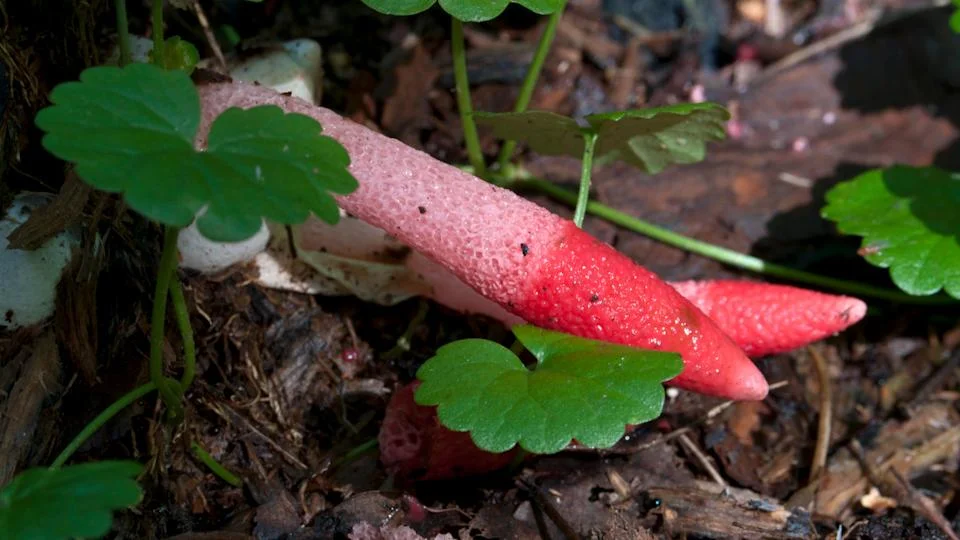
Rediscovered Treasure: Family Finds Rare Mushroom Thought Extinct For Over A Century
Finding a species long thought to be extinct is a dream of many naturalists and ecologists. Recently, a remarkable discovery was made by a family in Sri Lanka, bringing to light the incredible potential that lies within our backyards.
Journalist and naturalist Sajeewa Wijeweera was drawn to a bizarre-looking red mushroom with a rounded base that sprouted from the soil near his home. Intrigued, he snapped a photo and shared it with a network of botanists, leading to an unexpected revelation. Dr. Bhathiya Gopallawa from the University of Peradeniya responded quickly, noting that the mushroom appeared to be unrecorded in Sri Lanka.
After thorough investigation, the mushroom was identified as Mutinus bambusinus, a species not seen in the region for over a century. This mushroom typically grows around bamboo groves, yet Wijeweera pointed out a puzzling detail: "There were no bamboos in that area for as long as I can remember." This opens the door to speculations that this species may be more widespread than previously acknowledged.
Dr. Gopallawa emphasized the importance of the finding, stating, "It's likely that the mushroom survives in many locations but has been overlooked for years. … We expect more reports in the coming months." This statement regarding rediscovery is echoed across the globe, where other species, including animals, have re-emerged from the depths of presumed extinction.
Biodiversity loss is a pressing global crisis that is intricately linked to extinction rates, as noted by the United Nations. However, such discoveries inspire hope and reflect the resilience of nature. As the U.S. Environmental Protection Agency highlights, biodiversity is essential for sustaining our ecosystems and, by extension, our own well-being.
This incident serves as a powerful reminder that ordinary citizens can contribute significantly to scientific endeavors. University of Peradeniya botanist Deepthi Yakandawala remarked, "This is a great example of how citizen science can contribute to formal research." By simply observing and reporting findings, individuals can aid in the quest for biological knowledge.
As we strive to protect and conserve our planet, it's crucial to support political actions that foster biodiversity, reduce pollution, and promote sustainable practices. Each small effort counts and can lead to monumental changes.
In conclusion, the discovery of the Mutinus bambusinus serves as both an exciting scientific breakthrough and a poignant reminder of what might still be hidden in the world's natural environments. What other species might still be waiting to be found? Share your thoughts and let us know how you contribute to environmental stewardship!